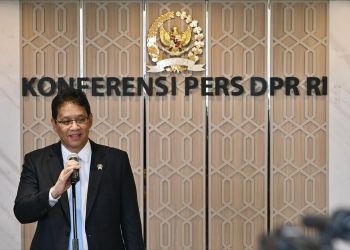Jakarta, Indonesia Sentinel — The Directorate General of Taxes (DJP) has reported that tax revenue from the digital economy sector reached Rp29.97 trillion (approximately $1.9 billion) as of October 31, 2024. This figure encompasses Value-Added Tax (PPN) collected from Electronic System Trade (PMSE), as well as taxes on cryptocurrency and peer-to-peer lending platforms.
The DJP’s Director of Education, Services, and Public Relations, Dwi Astuti in her statement Wednesday November 13, detailed that a significant portion of this revenue came from Value-Added Tax (PPN) on digital transactions.
As of October 2024, the government has appointed 193 digital businesses as PPN collectors under the PMSE framework. This includes 15 new appointments and three adjustments made in October. Out of the designated PPN collectors, 170 companies have actively collected and remitted Value-Added Tax (PPN), contributing a total of Rp23.77 trillion.
“The breakdown includes Rp731.4 billion in 2020, Rp3.90 trillion in 2021, Rp5.51 trillion in 2022, Rp6.76 trillion in 2023, and Rp6.86 trillion in 2024,” Dwi stated, as reported by Detikfinance.
In addition to Value-Added Tax (PPN) from Electronic System Trade, the DJP also collected Rp942.88 billion from cryptocurrency taxes and Rp2.71 trillion from the fintech sector, particularly from peer-to-peer lending activities.
Furthermore, tax revenue from transactions conducted through the Government Procurement Information System (SIPP) totaled Rp2.55 trillion. Altogether, these sources contributed to the Rp29.97 trillion collected from the digital economy.
Pencak Silat: Indonesia’s Martial Art and Cultural Heritage
Dwi emphasized that the taxation of digital businesses aims to establish a level playing field between traditional and digital enterprises. “To ensure fairness and equal competition, the government will continue to designate PMSE operators who sell products or provide digital services from abroad to Indonesian consumers,” Dwi explained.
She added that the government is also looking to expand tax collection in other areas of the digital economy, including taxes on cryptocurrency trades, fintech loan interest, and transactions through the SIPP for government procurement of goods and services.
(Raidi/Agung)


























